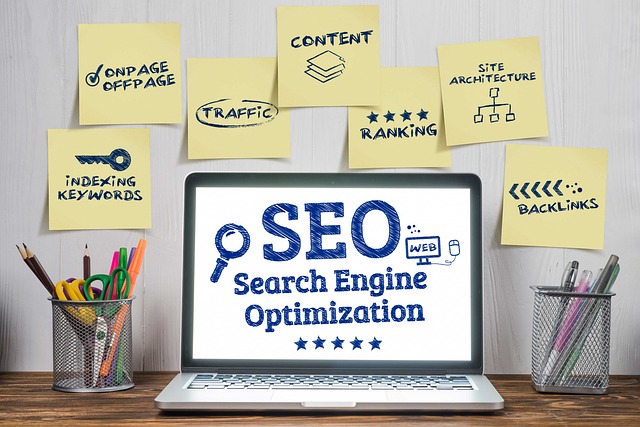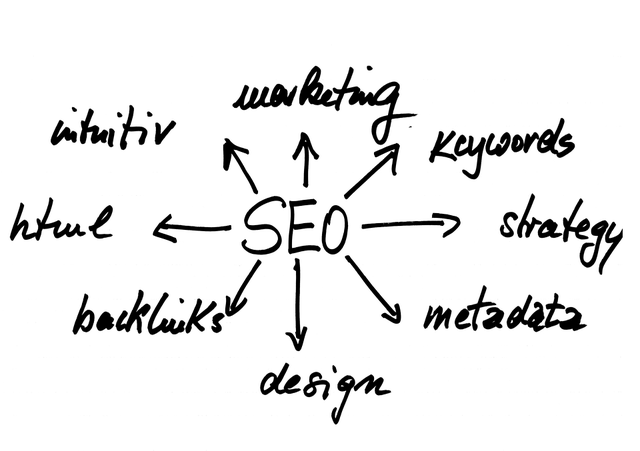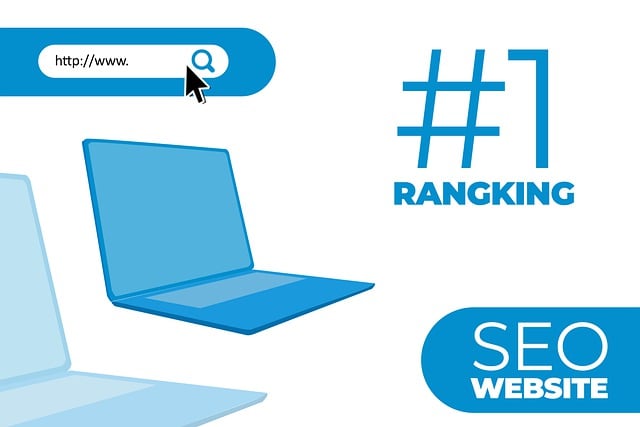In today's digital era, SEO Tips for Ranking Higher are essential for online success. Search engines use complex algorithms to rank websites based on content relevance, quality, and user experience. Key strategies include keyword research to understand audience language, creating high-quality engaging content, optimizing site structure (Technical SEO), building reputable backlinks, focusing on positive User Experience (UX), mobile optimization, analyzing competitor strategies, and continuous performance monitoring using tools like Google Search Console. Implementing these SEO tips is crucial for elevating online presence, attracting organic traffic, fostering trust, and driving business growth.
Looking to boost your online visibility and attract more traffic? This comprehensive guide provides essential SEO Ranking Tips to help you climb search engine ranks. From understanding SEO’s impact on your site’s visibility to on-page optimization, technical SEO, and building quality backlinks, each section offers actionable strategies. Discover why user experience (UX) matters, learn about mobile optimization, and explore competitor analysis techniques. By implementing these SEO tips for ranking higher, you’ll enhance your digital presence and reach a wider audience.
Understanding SEO and Its Impact on Online Visibility

In today’s digital era, understanding Search Engine Optimization (SEO) is paramount for online visibility and success. SEO tips for ranking higher are strategies that optimize your website to gain better placement in search engine results pages (SERPs). When users conduct searches, algorithms analyze content relevance, quality, and user experience to determine the most suitable websites to display. By implementing effective SEO practices, businesses can ensure their sites are among the top results, thus attracting more organic traffic.
A strong online presence is a game-changer for any organization aiming to thrive in its industry. High search engine rankings have a significant impact, as they not only increase web visibility but also foster trust and credibility among potential customers. With a better understanding of SEO and its mechanics, businesses can craft content that resonates with their target audience, ultimately driving conversions and growth.
Keyword Research: The Foundation of Successful SEO

Keyword research is the foundation of any successful SEO strategy, and it’s a crucial step in your journey to ranking higher on search engines. Understanding your target audience’s language and the terms they use when searching for products or services similar to yours is essential. This process involves digging deep into data to identify relevant keywords with high search volume and low competition.
By conducting thorough keyword research, you can uncover valuable insights about consumer behavior and tailor your content accordingly. It ensures that your website’s pages are optimized around keywords that drive organic traffic. With the right keywords in place, your SEO tips for ranking higher become more effective, making it easier for search engines to understand your site’s relevance and value.
On-Page Optimization: Crafting High-Quality Content

Creating high-quality content is a cornerstone of on-page optimization, one of the crucial SEO tips for ranking higher. Go beyond simply providing information; craft engaging, valuable content that resonates with your target audience. Incorporate relevant keywords naturally throughout your text, focusing on user intent rather than overstuffing. Enhance readability with concise paragraphs, subheadings, and visuals. The goal is to deliver a seamless user experience, encouraging visitors to stay longer and interact more, signaling to search engines that your content is of high value.
Ensure every element on the page, from meta titles and descriptions to image alt tags, aligns with your content strategy. These on-page elements play a significant role in how search engines understand and rank your pages. By optimizing them effectively, you’re not just improving your site’s visibility; you’re also setting the stage for better engagement and higher conversion rates, ultimately contributing to stronger SEO performance and a competitive edge in your niche.
Technical SEO: Ensuring Your Website is Search-Engine Friendly

Technical SEO plays a pivotal role in your website’s ability to rank higher on search engines. It involves optimizing the technical aspects of your site, ensuring it’s easily accessible and understood by search engine crawlers. This includes implementing structured data markup to help search engines better grasp the content on your pages, improving site speed so visitors and search algorithms alike can navigate without delay, and guaranteeing a mobile-friendly design given the overwhelming amount of web traffic that comes from smartphones.
A crucial aspect is also ensuring your website has an efficient site architecture and XML sitemap. A logical site structure helps both users and search engines find relevant content quickly. An XML sitemap provides a clear map of your site, making it easier for search engine crawlers to index your pages accurately. Additionally, regular site audits can identify and fix any issues that may hinder performance, such as broken links or crawl errors, further enhancing your website’s search-engine friendliness.
Building Quality Backlinks: A Powerful Ranking Factor

Building quality backlinks is a cornerstone of effective SEO tips for ranking higher. These links, earned from reputable and relevant websites, act as votes of confidence in your site’s authority and value. When high-quality sites link to yours, it signals search engines that your content is trustworthy and deserves a higher position in results. This powerful ranking factor goes beyond sheer quantity; the quality and relevance of backlinks hold significant weight in determining where your website appears on search engine pages (SEPs).
Focusing on building backlinks from authoritative sources within your industry can significantly boost your SEO efforts. Instead of aiming for quantity, strive for a diverse portfolio of backlinks from blogs, news sites, and industry-specific directories. This strategic approach not only enhances your ranking but also attracts an audience that is genuinely interested in what you have to offer, leading to better engagement and ultimately, improved business outcomes.
User Experience (UX) and Its Role in SEO

In the realm of SEO tips for ranking higher, User Experience (UX) plays a pivotal role. A well-designed UX ensures that visitors enjoy navigating your website, leading to lower bounce rates and longer session durations. Search engines like Google prioritize sites that offer a positive user experience because happy users are more likely to engage with content, share links, and return to the site. By focusing on intuitive navigation, fast loading times, mobile responsiveness, and clear, concise content, you not only enhance UX but also signal to search engines that your site is valuable and trustworthy.
Moreover, a seamless UX encourages user actions such as clicking links within your site, filling out forms, or making purchases—all of which send positive signals to search algorithms. Incorporating user feedback and regularly testing and improving your website’s usability further solidifies its SEO value. Remember that a site that keeps users engaged and satisfied is more likely to rank higher in search results, ultimately driving organic traffic and increasing conversions.
Mobile Optimization: Adapting to the Mobile Revolution

In today’s digital era, mobile optimization is no longer an option but a necessity for any successful SEO strategy aimed at ranking higher. With the majority of internet users accessing websites through their smartphones and tablets, search engines prioritize mobile-friendly sites in their results pages. To stay ahead of the curve, ensure your website is responsive, meaning it adapts seamlessly to different screen sizes and provides an intuitive user experience regardless of the device used. Google’s Mobile-Friendly Test tool can help identify any issues with your site’s mobile performance.
Implementing a mobile-first approach involves optimizing key elements such as faster loading times, improved navigation, and clearer content presentation. This shift in focus ensures that mobile users enjoy seamless interactions, encouraging longer sessions and higher engagement rates. As search engines like Google continue to favor mobile-optimized sites, embracing these SEO tips for ranking higher is pivotal for any business aiming to thrive online.
Analyzing Competitors: Learning from Their Strategies

In the competitive world of online visibility, understanding your competitors’ strategies is an invaluable SEO Tip for Ranking Higher. By analyzing their content, backlink profiles, and keyword usage, you can uncover insights that will significantly boost your own search engine rankings. It’s like mapping out a competitor’s journey to success, identifying what works for them and how it aligns (or diverges) from your own approach.
This strategic analysis allows you to fill gaps in your content, refine your link-building tactics, and tailor your keyword strategy to better resonate with your target audience. By learning from both their victories and missteps, you can create a powerful roadmap for improvement, ensuring that your online presence is optimized to attract more organic traffic and outrank the competition.
Continuous Monitoring and Adjustment for Optimal Rankings

SEO ranking is an ongoing process, and one of the crucial SEO tips for ranking higher is continuous monitoring. Regularly checking your website’s performance in search engine results pages (SERPs) allows you to identify areas of improvement. Utilise tools provided by search engines like Google Search Console or third-party analytics platforms to track keywords, click-through rates, and user engagement metrics. By staying vigilant, you can swiftly adapt to algorithm updates and market trends, ensuring your content remains relevant and optimised.
Adjusting your SEO strategy based on these insights is essential for optimal rankings. This may involve refining meta titles and descriptions, updating or removing low-performing content, optimising images, or enhancing mobile usability. Keeping up with these adjustments not only maintains but also improves your website’s visibility and search engine placement over time.
